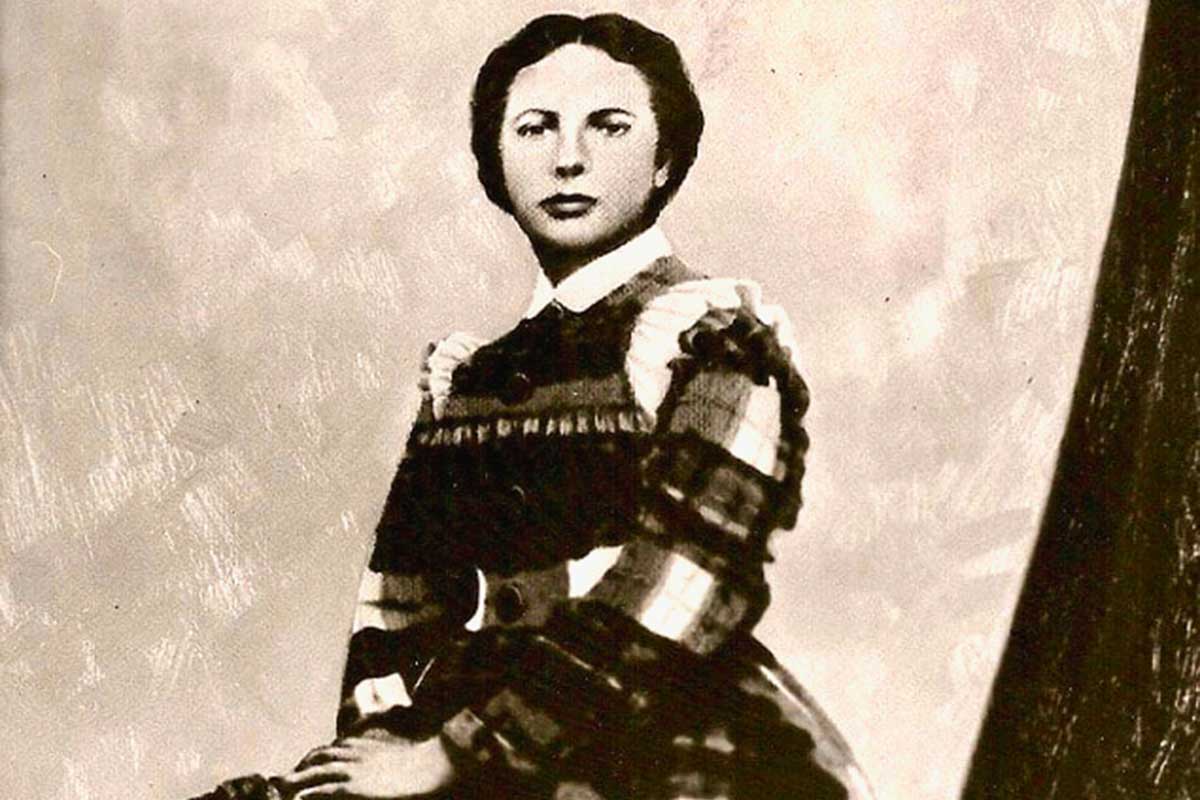Dora Hand, many said, was the most beautiful woman in Dodge City Kansas, back in the 70s. That would be the 1870s. To her rare beauty you may add an angelic, hypnotic voice that mesmerized all the cowboys who saw her perform at the Lady Gay Theater. She was a nightly singer there and also performed at the Alhambra Saloon. The cowboys coming in off the range from long cattle drives flocked to hear her. She sang in church, too, and those same cowboys – many of them strangers to church – would go just to hear her sing. Dora was much loved in the city for her singing and also because she shared her substantial income quite liberally with the less fortunate of Dodge.
Dodge City Mayor Jim “Dog” Kelley also owned the Alhambra and as such, was Hand’s benefactor and protector and probable boyfriend. One cowboy from South Texas, the wealthy and stunningly handsome James “Spike” Kenedy, came to hear her sing and was soon infatuated with her. His interest in Dora soon drew Dog’s ire and the two got into a bar room brawl over their macho jealousies. Mayor Kelley thoroughly embarrassed Spike by spiking him, head-first, into the dirt street outside the bar.
Spike could not let this humiliation go unanswered. He left town for a while and bought himself the fastest horse he could find so that he could outrun any posse that might pursue him. Then he returned one night to the mayor’s house and fired two shots through the plank wood wall at the spot where he knew Dog slept. Kenedy then raced off on his fast horse for what he thought was a clean get-away. Unbeknownst to him, Mayor Kelley was not home. Dora was house sitting. Spike had killed Dora instead.
Famed Dodge City Sheriff Bat Masterson assembled a posse of lawmen including Wyatt Earp, Bill Tilghman, and Charley Bassett. Together, they took off after Spike Kenedy. It was kind of a dream team posse, as if Superman, Batman, Spiderman, and Captain America got together to bring Spike to justice. They took a shortcut and caught up with Spike as he was ready to cross the Arkansas River. He turned his horse and ran, but Wyatt Earp shot Spike’s horse out from under him. Masterson winged Spike in the shoulder, too. They took him back to Dodge and put him in jail, where Spike learned he had killed Dora, instead of Kelley, but he didn’t confess to the crime.
Spike’s father, Texas rancher Mifflin Kenedy, informed of the matter by telegrams, immediately made his way up to Dodge City to arrange defense for his son’s crime. His father was no stranger to Dodge City as he provided, from his ranches in Texas, a huge percentage of the cattle brought there each year. Mifflin Kenedy was also the cofounder of the King Ranch. Kenedy, Texas, is named for him, as is Kenedy County. Suffice it to say that he was quite rich and enormously influential.
He arrived in Dodge City, they say, with a satchel full of money, and arranged for his 23-year-old son Spike to get the medical care he needed for his shoulder wound. A judge conducted an inquest into Hand’s death. But after a meeting that included Marshal Masterson, Mayor Kelley -– the crime’s supposed target -– Dodge City deputies, and the judge, they came to an understanding. Spike would be released for lack of evidence. No one saw him do it.
Some say that there was a good deal of money exchanged that day, because, in the year following, each of those who attended the meeting suddenly had eyebrow-raising funds for the building of nice homes and the purchasing of successful businesses. No one knows for sure, but that’s what many have deduced.
Dora, just 34, was not forgotten. She received a magnificent funeral with a grand escort from all levels of society. As many as 400 mounted cowboys escorted her funeral carriage to Boot Hill, the biggest funeral procession ever seen in Dodge City.
Spike, or Santiago as his mother, Petra, called him, eventually lost most of his left arm due to infections within the wound. He returned to Texas and died six years later, at the age of 29, of typhoid fever. He is buried in the family plot in the Brownsville Cemetery.
(For a more detailed story see Petra’s Legacy: The South Texas Ranching Empire of Petra Vela and Mifflin Kenedy by Jane Clements Monday and Frances Brannen Vick, 2007.)


